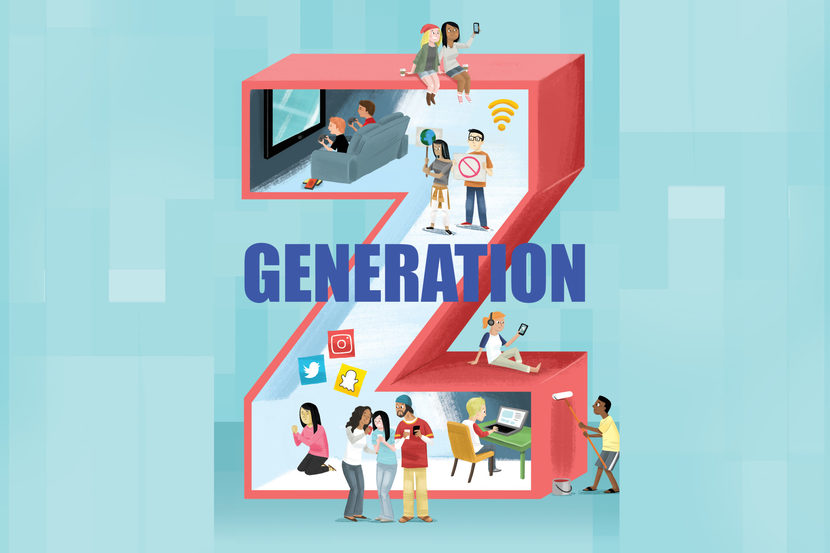
Recently, ChatGPT's DAN (Do Anything Now) mode has set off a wave of discussion on social media, of which the topic of "falling in love with artificial intelligence" has aroused widespread attention, and the cumulative playback has exceeded the 80 million mark. This phenomenon is not only a discussion of the infinite companionship of AI partners, but also a profound reflection on the definition of intimacy in the digital age of "Generation Z" (young people born between 1995 and 2009).
With the rapid development of digital technology, we seem to be entering the age of "embodiment" predicted by the philosopher Maurice Merleau-Ponty. In this era, the rapid iteration of artificial intelligence and the endless emergence of wearable devices have broken the boundary between virtual and reality, so that our vision, hearing, touch and perception have been extended like never before. This technological innovation is undoubtedly quietly changing the understanding and experience of "Generation Z" on intimate relationships.
According to media reports, more than 90 percent of Generation Z accept online dating, and the acceptance rate of long-distance relationships is as high as 70 percent. They maintain online intimacy through phone calls, Internet chats, etc., and even enjoy this purely digital intimacy experience. This kind of intimacy is not completely out of the "familiar" category of traditional intimate relationship, it is still based on the similar discourse symbols used by two people or groups. However, digital technology has given this relationship new meaning and form.
In the digital world, people can convey a wealth of emotion and intent through a 60-second voice, a few memes, or even simple actions such as "pat" or "poke". This kind of communication is fast and efficient, allowing people to establish deep emotional connections in a short time. At the same time, digital technology has also broken the physical restrictions of traditional intimate relationships, transforming physical presence into interactive "presence" of chat rooms, videos, live broadcasts, and games, creating a purer and freer emotional relationship.
Generation Z's digital socializing is both intimate and lightweight. They are more likely to develop trust with strangers online, quickly break the ice and form connections. Whether it is finding friends with common interests on the Internet or meeting like-minded partners in games, they are able to easily share each other's lives and feelings. This digital intimacy allows them to transcend geographical and social boundaries to achieve broader social connections and emotional support.
However, digital intimacy is not without its challenges. Although it provides people with a more convenient and free way to socialize, it also brings new problems and challenges. On the one hand, due to the anonymous and virtual nature of digital intimacy, it is difficult for people to truly know each other's true identity and background. This can lead to some people being cheated and harmed online. On the other hand, digital intimacy can also cause people to become overly addicted to the virtual world and neglect real-world interpersonal relationships. Over-reliance on digital intimacy can lead people to become isolated and disconnected in real life.
For Generation Z, digital intimacy is not just a way of socializing but a way of life. They seek a sense of belonging and identity through digital intimacy, building their own social networks and emotional support systems in the virtual world. However, while enjoying the convenience and fun of digital intimacy, they also need to be alert to the potential risks and challenges involved.
In the digital age, Gen Z also needs to "anchor" themselves through the practice of digital intimacy. As countries become more socially mobile, the lives of Generation Z are no longer limited to where they were born. They need to find stable relationships and emotional support in a constantly fluid and changing environment. Digital intimacy provides them with a convenient social platform where they can stay connected and communicate with others anytime, anywhere. However, they also need to learn to find a balance between the virtual world and the real world and avoid becoming too obsessed with the virtual world and neglecting the real world.
In general, digital intimacy is a new way and a new model for Generation Z to explore relationships in the digital age. It brings both convenience and fun as well as challenges and risks. For Gen Z, how to enjoy the benefits of digital intimacy while avoiding its potential risks and challenges is a question worth pondering.

Driven by the Trump administration's push to relax financial regulations and the recovery of investment banking business, the market value of the six major banks in the United States has cumulatively increased by approximately 600 billion US dollars by 2025.
Driven by the Trump administration's push to relax financia…
On Christmas evening, U.S. President Trump posted on social…
According to multiple foreign media reports, the recent fin…
The middle class, once regarded as the cornerstone of Ameri…
On December 19th local time, the US military launched a lar…
The Boxing Day sunshine should have cast a false glow of pr…